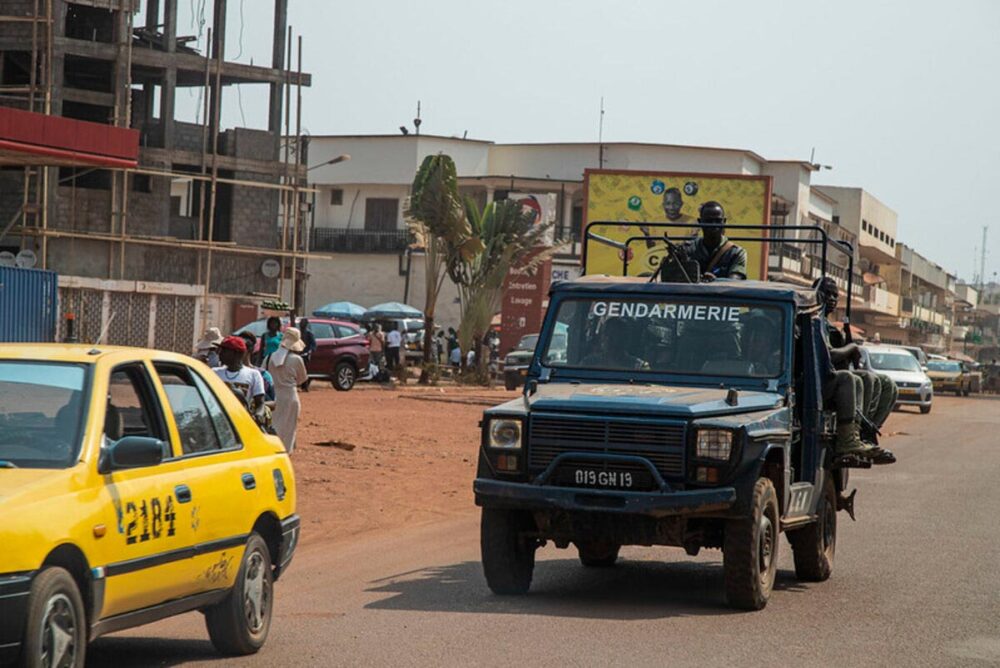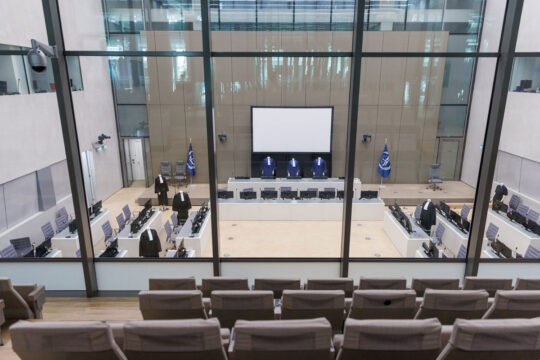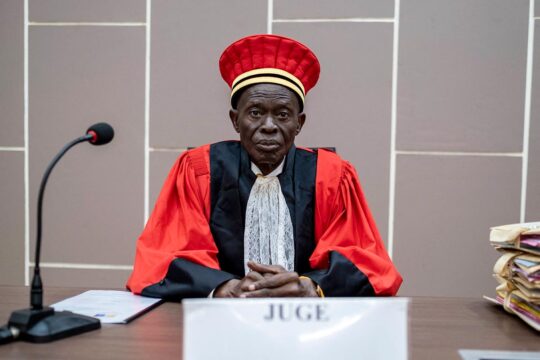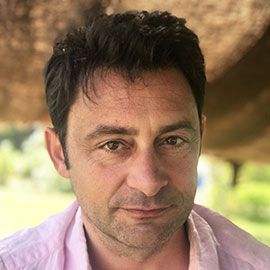16 June 2024, a Sunday not quite like any other in Bangui, the capital of the Central African Republic (CAR). The former anti-balaka local group leader, Edmond Beina, was arrested by a team from the Special Judicial Police Unit of the Central African Special Criminal Court (CPS), supported by the Central African gendarmerie. Sources close to the two courts confirm that they got logistical support from the International Criminal Court (ICC), which had provided the information needed to locate Beina, wanted for war crimes and crimes against humanity.
“To date, there has been no accountability for the horrendous crimes committed in Guen, and impunity continues in the Central African Republic,” said Lewis Mudge, Central Africa director at Human Rights Watch, in a press release published a few days later. “The Special Criminal Court can change that narrative and finally deliver some justice to victims and their families who have been waiting for so long.”
The ICC financed the operation, according to two sources. But it also seems to have made the mistake of not reaching an agreement with the Central African Ministry of Justice beforehand. When the Court in The Hague called to request his transfer, the latter – according to our sources – did not immediately “find” the sealed arrest warrant issued on 7 December 2018 by the ICC against Beina. The man is accused of murderous attacks against muslim civilians, particularly in Guen, in western CAR, at the beginning of 2014, when he was a local group leader of the anti-balaka, Central Africans grouped together in a self-defence militia that took up arms in 2013.
A subordinate of Mokom and Ngaïssona
The warrant specifies that he committed these crimes as part of the policy put in place, in particular, by two anti-balaka leaders, Patrice-Édouard Ngaïssona, whose trial ends this week in The Hague, and Maxime Mokom, for whom the ICC prosecutor abruptly dropped all charges in 2023: an act of recognition by Karim Khan of the weakness of his case, but one that caused incomprehension among the authorities in Bangui. A year earlier, Khan had announced the end of his investigations in the Central African Republic, where it was also noted that he had never set foot in the country as the ICC prosecutor.
It will therefore take a few days to “find” the ICC warrant at the Bangui public prosecutor’s office, a warrant which will not be unsealed until 7 November 2024. Meanwhile, the magistrates of the CPS, the Central African hybrid court based in Bangui, are acting without delay. They have the advantage of being on their home turf, but they also have reason to believe that the ICC will do everything in its power to obtain Beina. For one reason in particular: the looming lack of trials by mid-2025.
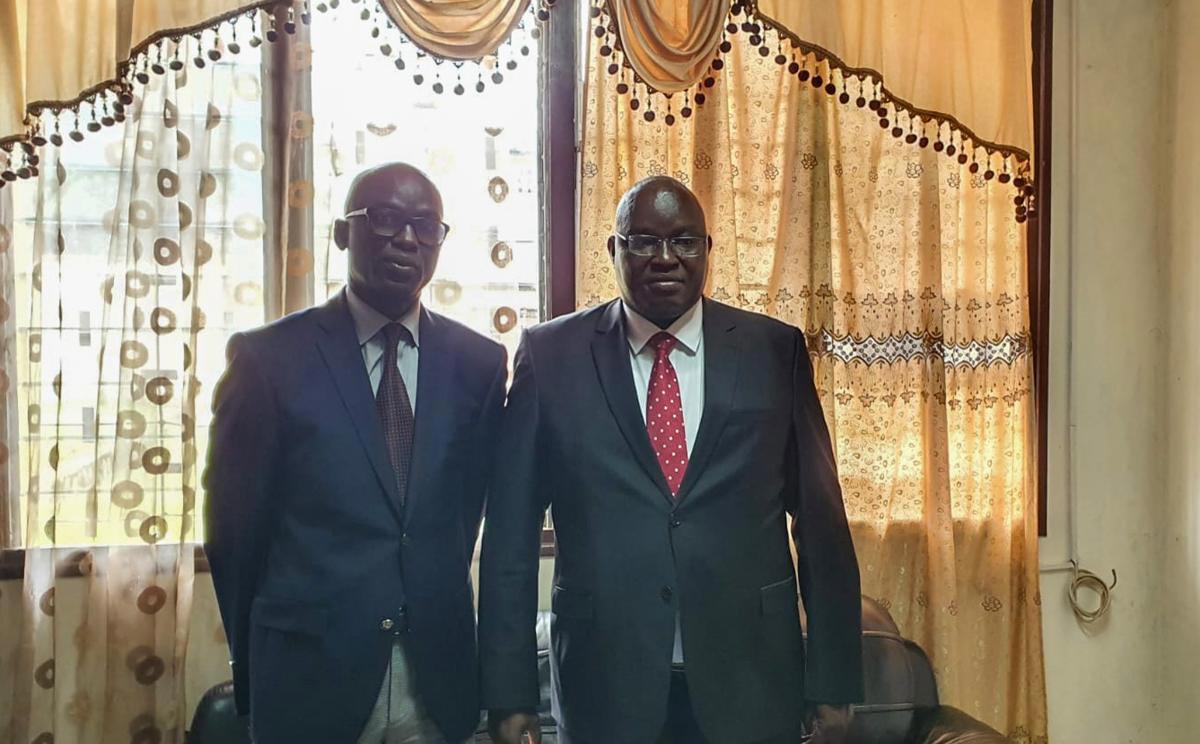
A centrepiece
For the CPS, Beina is the final, key piece in a preliminary investigation opened by its prosecutor in May 2019 into the attacks which took place in Guen in early 2014. When he was arrested, three men were already in prison in Bangui and another was under judicial supervision in this case. With Beina behind bars, the investigation is moving swiftly towards its conclusion. According to our information, the investigation was closed on Friday 6 December in Bangui.
The former anti-balaka group leader was presented with the CPS arrest warrant dated 3 May 2022, and not the ICC warrant, when he was arrested on 16 June 2024. He then made his first appearance before the CPS’s investigating chambers, in camera, on the following day, 17 June. The following day, the investigating judges of the CPS wrote to the Central African justice minister, stating that they had charged Beina and remanded him in custody, “so that”, they added, “he cannot leave without a decision to the contrary by our cabinet”.
The letter from the investigating judges, which Justice Info was able to read, had the effect of suspending a transfer order already signed by the justice minister, at the request of the ICC. “They were desperate, they needed Beina to support their budget request for 2025, and they didn’t hide it,” says a senior judicial official working in Bangui, speaking on condition of anonymity.
Five co-accused in prison in Bangui
Judicial logic seems to favour the CPS. The events took place in the Central African Republic, the perpetrators and victims are Central African, and the five suspects of the same case are in prison in Bangui, where the case has been under investigation since 2020. What’s more, the “complementarity” rule required by the ICC Statute and put forward by Prosecutor Khan just two months earlier in a policy paper, means that The Hague will only take on a case if the country concerned is “unwilling or unable” to try it.
Admittedly, in the so-called “Central African Republic II” situation, opened in 2014 by the Hague Tribunal, “the Central African Republic had indeed referred the case to the International Criminal Court in a context where we did not have the capacity to judge”, recalls the Central African justice minister, Arnaud Djoubaye Abazène, in response to a question about the Beina case, during a public debate organized on 3 December in The Hague, on the sidelines of the Assembly of States Parties to the ICC. “But, since the establishment of the Special Criminal Court, we have the material capacity to prosecute the crimes that are perpetuated in our territory, and the will is there,” he says.
In the Beina case, the minister considers that there is a “positive conflict of jurisdiction, where the International Criminal Court considers that it has jurisdiction to judge and where the Special Criminal Court also considers that it has jurisdiction”. It is up to the ICC’s Pre-Trial Chamber, he says, to rule on the motion for inadmissibility that he himself submitted to challenge the jurisdiction of the International Criminal Court on 22 October. It is a copious document of more than 50 pages, not counting the many annexes, a redacted version of which was made public on 14 November.
The motion states that the ICC has not issued arrest warrants for Beina’s co-accused, Mathurin Kombo, François Boybanda, Philémon Kahéna and Dieudonné Gomitoua. As a result, “the ICC could only try Edmond Beina, leaving it to the CSP to try the other co-accused”. “But in any case,” continues the Central African minister, “the spirit of the Rome Statute is absolutely clear: the International Criminal Court intervenes subsidiarily when the State is unwilling or unable. Here, we have the capacity and the will, so we’re waiting... we're awaiting the Court’s decision”.
Reached by telephone, Sonia Robla, Sonia Robla, representative of the ICC and Chief of its office of the Hague Court office in Bangui, underlines that the preliminary chamber has asked the registry to assist Beina in finding a lawyer, who has not been appointed yet. She explains that the next step could now be “that the chamber asks all the parties, including the office of the prosecutor, to make observations” before taking a decision on the admissibility of the case.
Common sense and judicial economy
His motion, which highlights the progress made in cooperation with the ICC, is a plea in favour of the CSP. “Common sense and the notion of judicial economy dictate that a single trial should be held for the five co-accused, instead of two trials sharing one accused at the ICC and four accused at the CSP. Finally, it is undeniable that a trial before the CSP would be quicker and less costly, particularly in terms of witness transport costs and interpretation costs. All the magistrates of the CSP are French speakers, some also speak Sango, and have in-depth knowledge of the Central African context,” explains the document.
The minister also suggests that some cases have been difficult to digest in Bangui. “I would like to talk about the cooperation between the Central African State and the International Criminal Court, for example in the Mokom case,” he adds. “At the national level, he was convicted and an arrest warrant was sent so that he could be handed over to us [the defence of Mokom, who was released by the ICC, insists that he did not receive the warrant]. The victims were perplexed by what happened. We are going to work harder to ensure that there is a more effective cooperation and complementarity between the ICC and the national courts, which include the CSP.”
But for Robla, Beina hasn’t been the focus of particular attention by the ICC. She refers to a “standard procedure” that implies that “as soon as a person is arrested because of a warrant of arrest that has been notified by the ICC, the States parties have the obligation to cooperate and should have initiated all the national proceedings for the surrender and transfer to the ICC”. The ICC's head of public information also denies that the Court in The Hague was guided by budgetary pressure and the prospect of having no defendants in the dock by mid 2025.
“For us, all the warrants of arrest have the same importance. The Court has never had so much activity in history as we have now,” she adds. “We are investigating in twelve countries; we have reparations orders to implement, we have 30 warrants of arrest. Our warrant of arrest [for Beina] was issued in 2018, the national authorities were informed. Do we need a different reason to expect a State party to cooperate with the Court?”
The decision of the Pre-Trial Chamber is pending.


